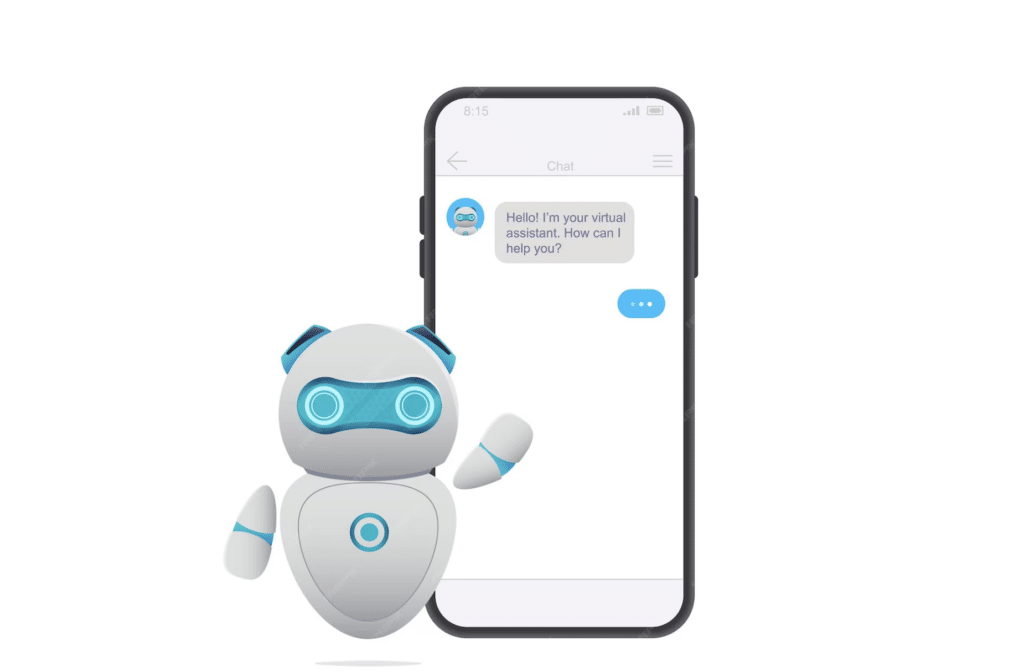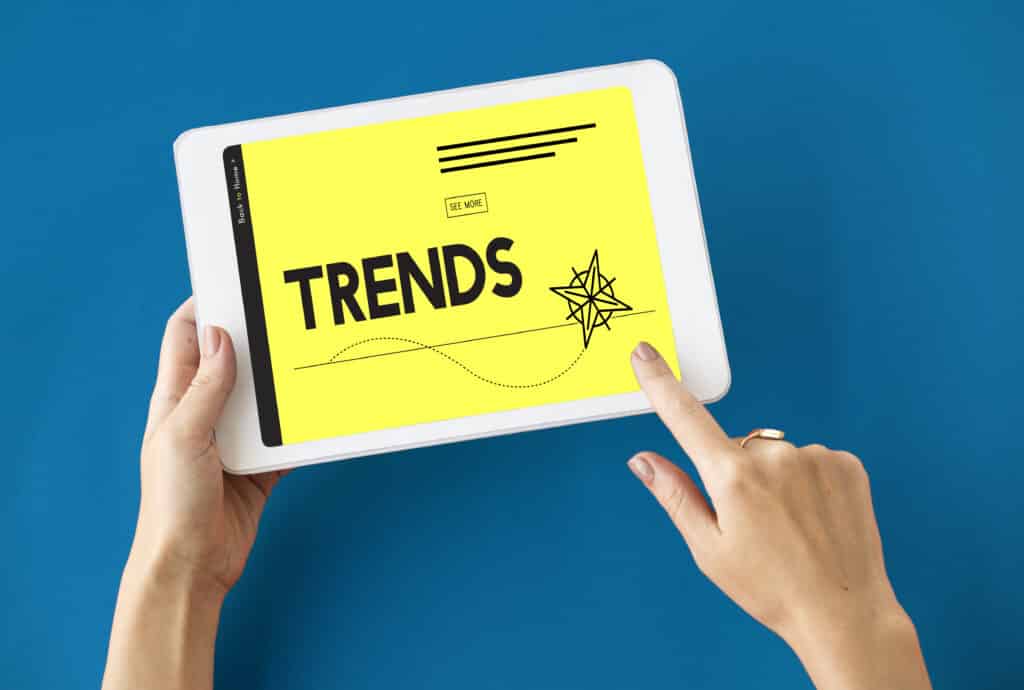The integration of AI in event management has revolutionized traditional lead generation and conversion strategies. Gone are the days when event professionals relied solely on conventional methods; today, AI in events brings a new level of sophistication and efficiency. This shift has transformed how event leads are identified, engaged, and converted.
As we explore this topic, we will delve into how AI is redefining event lead management, making it more data-driven, precise, and effective. This marks a significant evolution in the event industry, promising greater success in attendee acquisition and engagement.

The Role of AI in Events for Lead Generation
The integration of AI in events, especially in lead generation, represents a significant shift, moving away from traditional methods to a more data-driven approach:
- Targeted Lead Identification: AI’s capacity to go through complex data sets allows for precise identification of potential leads. By examining patterns in online behavior, historical attendance at similar events, and specific interactions within industry-related content, AI pinpoints the most promising leads. This targeted approach ensures that marketing efforts are focused on individuals who are more likely to engage with the event.
- Predictive Analytics for Lead Scoring: AI employs advanced predictive analytics to assign a lead score, a quantifiable measure of a lead’s likelihood to convert. This scoring considers various factors like online engagement with event-related content, responses to previous marketing campaigns, and demographic data to prioritize leads effectively.
- Personalized Marketing Campaigns: AI’s strength in personalization lies in its ability to analyze individual user data. It crafts marketing messages that resonate on a personal level, increasing the relevance and impact of each communication. This tailored approach leads to higher engagement rates and a stronger connection with potential attendees.
- Enhancing Lead Engagement with AI Chatbots: AI chatbots provide instant, personalized interactions with potential leads. They offer tailored responses to inquiries, maintain engagement through interactive conversations, and can even guide leads through the registration process. This constant interaction fosters a stronger relationship with leads and gathers continuous feedback for further personalization.

- Automating Lead Nurturing Processes: AI in events automates the lead nurturing process, ensuring timely and personalized follow-ups. From scheduling emails based on lead interactions to sending reminders or updates about the event, AI ensures that leads remain engaged and informed throughout the lead nurturing cycle.
- Integrating Social Media Insights: AI in events offers a wealth of insights into potential leads’ interests through social media analytics. It analyzes social media behavior, including likes, shares, and comments on relevant content, to tailor lead-generation strategies. This social media data enables a more focused approach to capturing leads on these platforms.
AI-Driven Strategies for Lead Engagement
Employing AI in events for lead engagement significantly enhances the effectiveness and efficiency of interactions with potential leads:
- Customized Interaction Paths with AI: AI’s deep dive into each lead’s interaction history crafts unique communication paths, enhancing relevance and resonance. By understanding specific interests and engagement patterns, AI tailors every message, ensuring leads receive content that aligns with their preferences, thus significantly boosting engagement potential.
- Predictive Behavior Analysis for Engagement: AI’s predictive analysis extends beyond simple behavior tracking, anticipating future interactions and preferences. This foresight allows for the crafting of strategic engagement approaches, tailored to likely future behaviors, thereby enhancing the effectiveness of each engagement initiative.
- Enhanced Email Campaigns with AI: AI in events transforms email marketing by not only personalizing content but also by determining the optimal timing for sending emails, and segmenting the audience effectively. This leads to a significant increase in engagement rates, as emails are more likely to be opened and acted upon when they are highly relevant and timely.
- AI-Optimized Content Recommendations: Beyond generic content distribution, AI in events pinpoints specific materials that resonate with each lead’s interests. By recommending highly relevant articles, videos, or case studies, AI keeps leads engaged, steadily nurturing their interest in the event.
- Real-Time Lead Interaction via AI Chatbots: AI chatbots offer more than just basic interactions; they provide personalized conversations, detailed event information, and proactive assistance in the registration process. This level of real-time engagement maintains lead interest and can significantly expedite the conversion process.
- Monitoring and Adapting Lead Engagement Strategies: AI’s ongoing analysis of engagement strategies isn’t just about monitoring effectiveness; it actively adapts strategies based on real-time data. This dynamic approach ensures that engagement tactics are continually optimised to align with the evolving interests and behaviors of leads.

Optimizing Event Marketing with AI
AI in events plays a crucial role in refining event marketing strategies:
- Targeted Marketing Campaigns: AI’s analysis of attendee data extends beyond surface-level demographics, delving into past behaviors and preferences. This allows for the creation of marketing campaigns finely tuned to the specific interests and needs of potential attendees, resulting in higher engagement and conversion rates.
- Optimized Advertising Spend: AI in events doesn’t just randomly choose marketing channels; it employs predictive analysis to determine the most effective platforms, audiences, and times for advertising, ensuring that every dollar spent yields the maximum return on investment.
- Personalized Content Distribution: AI personalises content distribution at an individual level, analyzing past interactions to determine the types of content most likely to engage each lead. This approach ensures that marketing materials are not only seen but resonate strongly with the intended audience.
- Social Media Strategy Enhancement: By analyzing trends, engagement patterns, and user behaviors on social media, AI fine-tunes social media strategies, ensuring that content is not only relevant but also distributed at the optimal times for maximum engagement.

- Automated Marketing Processes: AI’s automation capabilities extend to scheduling content, segmenting audiences, and even initiating follow-up actions, maintaining a consistent and efficient marketing workflow that keeps leads engaged and moving towards conversion.
- Analyzing Marketing Campaign Effectiveness: AI provides deep insights into the performance of marketing campaigns, tracking metrics like engagement, conversion rates, and overall ROI. This data-driven approach allows for continual refinement and optimization of marketing strategies.
AI in Conversion Rate Optimization
AI in events is revolutionizing conversion rate optimization, by offering more personalized and efficient strategies:
- Personalized Conversion Journeys: AI creates unique conversion paths for each lead, analyzing their interaction history, content preferences, and responses to previous marketing efforts. This personalized approach can include customized email campaigns, targeted special offers, and relevant content suggestions, making each interaction feel tailored and increasing the likelihood of conversion.
- Optimizing Registration and Checkout Processes: AI thoroughly examines the registration process, identifying and resolving points where potential attendees drop out. By streamlining these processes, AI ensures a user-friendly experience, reducing abandonment rates and encouraging more completion of the registration process.
- Predictive Analysis for Conversion Opportunities: AI’s predictive analysis identifies leads most likely to convert by assessing their engagement patterns, such as website visits, email interactions, and social media activity. This enables event marketers to focus their efforts on the most promising leads and devise strategic interventions to guide them towards conversion.
- Dynamic Pricing Strategies: Utilizing AI for dynamic pricing involves adjusting ticket prices based on various factors, including demand trends, time remaining until the event, and individual lead profiles. This flexible pricing strategy can make events more accessible to a broader audience while also maximizing revenue potential.
- Retargeting and Follow-Up Strategies: AI enhances retargeting efforts by identifying leads who have shown interest but haven’t yet converted. It then automates follow-up communications, sending personalized messages and offers based on their specific interests and previous interactions, thereby increasing the chances of conversion.
- Measuring and Analyzing Conversion Metrics: AI in events continuously measure and analyze conversion metrics and provides invaluable insights into the effectiveness of different marketing strategies. This data-driven approach allows for real-time adjustments and optimisations, ensuring that marketing efforts are always aligned to maximize conversions.
Integrating AI with Event CRM Systems
The integration of CRM systems with AI in event management enhances lead management:
- Automated Data Analysis and Insights: Integrating AI with CRM systems transforms data analysis, enabling deep insights into lead behaviors and preferences. AI examines patterns in lead interactions, purchase history, and engagement levels, providing a nuanced understanding of each lead. This detailed analysis assists in crafting more effective, data-driven marketing and engagement strategies.
- Enhanced Lead Scoring and Prioritization: AI algorithms within CRM systems enhance lead scoring mechanisms by evaluating a multitude of factors, such as engagement history, response rates, and potential value. This sophisticated scoring allows event organizers to prioritize their efforts effectively, focusing on leads with the highest conversion potential.
- Personalized Communication Strategies: AI-driven CRM systems offer a new level of personalized communication. By analyzing past interactions and preferences, AI tailors messages, ensuring that each communication resonates with the lead. This personalized approach leads to higher engagement and conversion rates.
- Predictive Lead Nurturing: AI enables CRM systems to predict the most effective nurturing strategies for individual leads. It identifies optimal content, communication channels, and timing, ensuring each lead receives attention in a manner most likely to result in conversion.
- Streamlining Lead Management Processes: The integration of AI in events streamlines various lead management tasks within CRM systems. This includes automating data entry, efficiently tracking lead progress, and scheduling follow-ups. This automation reduces manual workload and increases the efficiency of the lead management process.
- Continuous Learning and Improvement: AI systems within CRM continually learn from new data and interactions. This continuous learning process ensures that lead management strategies are constantly refined and improved, adapting to changing lead behaviors and market trends.

Challenges and Solutions in AI-Driven Lead Generation
AI in event lead generation and conversion comes with its unique set of challenges and solutions:
- Complexity of AI Integration: Integrating AI in event management systems can be challenging due to its complexity and the need for substantial technical knowledge. To address this, investing in intuitive AI platforms that are user-friendly and require minimal technical expertise is essential. Additionally, establishing partnerships with AI technology providers can facilitate smoother integration and offer access to expert support.
- Ensuring Data Privacy and Security: With AI’s reliance on large volumes of data, maintaining data privacy and security is crucial. Solutions include implementing robust cybersecurity measures, regular security audits, and adhering strictly to international data protection regulations like GDPR. Educating staff on best practices in data handling and privacy is also vital.
- Training and Skill Development for AI Tools: The effective use of AI in events requires specific skills and understanding. Addressing this challenge involves providing detailed training sessions on AI tools and continuous learning opportunities for staff. This ensures that the team is equipped to leverage AI technology effectively.
- Maintaining Personal Touch in AI Interactions: While AI can automate many processes, maintaining a human touch is essential for customer satisfaction. Integrating human elements at key customer journey points ensures a balance between efficiency and personalized experiences.
- Overcoming Data Quality Issues: AI’s performance is heavily dependent on the quality of the input data. Regular data audits to identify and rectify inaccuracies, along with employing data cleaning and enrichment techniques, are crucial in maintaining the integrity of the data used for AI processes.
- Ethical Considerations in AI Usage: Ensuring the ethical application of AI is a significant challenge. This includes being transparent about how AI is used, avoiding biases in AI algorithms, and establishing guidelines that dictate the ethical use of AI. Regular reviews and audits of AI systems for ethical compliance are also crucial.
The Future of AI in Event Lead Management
The future of AI in event lead generation and conversion promises groundbreaking advancements:
- Advancing Predictive Analytics: AI will evolve to offer more sophisticated predictive analytics, providing even more accurate lead scoring and behavior prediction, enhancing the precision of marketing strategies.
- Deepening Personalization in Lead Engagement: Future AI developments will enable even deeper levels of personalisation in lead engagement, tailoring interactions and content to incredibly specific preferences and behaviors of potential attendees.
- Integration with Emerging Technologies: AI in events is expected to integrate with other emerging technologies such as VR and IoT, creating a more immersive and interactive lead engagement and conversion process.
- AI-Powered Real-Time Decision Making: The future will see AI providing real-time insights and decision-making tools in lead management, enabling instant adjustments to marketing and conversion strategies.
- Enhanced Lead Nurturing with Machine Learning: Machine learning aspects of AI will further enhance lead nurturing processes, learning from each interaction to continuously improve engagement strategies.
- Ethical AI and Privacy Compliance: As AI evolves, a greater emphasis will be placed on ethical AI practices and stringent adherence to privacy laws, ensuring responsible and secure handling of lead data.
Conclusion
The integration of AI in event lead generation and conversion marks a significant transformation in the event industry. As we’ve explored, AI offers unparalleled advantages in personalising and optimising the lead management process. For event professionals, embracing AI means stepping into a future where marketing strategies are more data-driven, interactions are tailored, and conversion rates are significantly improved. Platforms like Gevme are at the forefront of this transformation, incorporating AI to optimize event lead management effectively. As AI continues to evolve, it promises even more innovative approaches, ensuring that the event industry remains dynamic and adaptive in an ever-evolving technological landscape.








